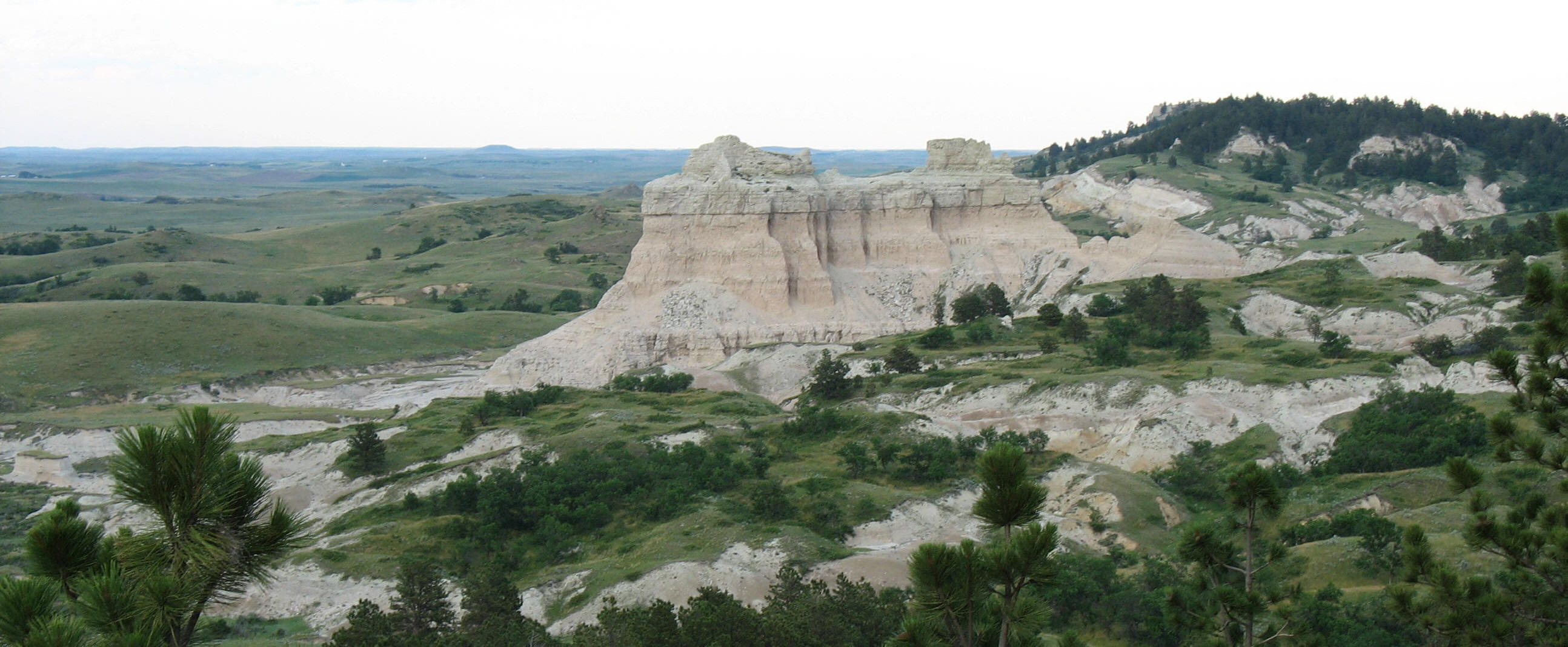|
GEOL 410 - Field Geology
June 22 - July 24, 2026 Black Hills - South Dakota and Wyoming Session Two - Six semester credits
Register Online
Application deadline: January 31, 2026
|
|
|
Cost: $5,495.00 for consortium members and $5,895 non-consortium. Deposit of $300 is due at registration. Includes tuition, all fees, food and transportation from Rapid City. Students will stay in dorm setting in two in a room type of lodging. Two days of camping. Course is limited to 24 students. Details will be emailed to registrants 30 days prior.§ Important dates: Monday, June 22 at 8:00 AM – Meet at SD Mines. Lodging arrangements will be made for those arriving on June 21, Sunday. July 24 – end of camp – students leave at 12:00 noon.§ Location: Rapid City, SD § Introduction: The scenic Black Hills of South Dakota and Wyoming provide the setting of world-class geology for the course. Students will map Precambrian metamorphic, Phanerozoic sedimentary and Tertiary igneous rocks to better understand the complex geologic evolution of the Black Hills uplift from the Trans-Hudson orogeny to the post-Laramide deposition sediments that make up the Badlands area east of the Black Hills as well as in the Slim Buttes area of northwestern South Dakota. § Projects: Students will measure, describe and correlate stratigraphic sections to gain familiarity with Paleozoic and Mesozoic formations of the Black Hills region. The weekly mapping projects, involving different rock types and undertaken at various scales, provide interesting geologic insight to the major stages of the Black Hills uplift. The second week project begins with the mapping of a structure with inclined sedimentary rocks. The third week project involves the mapping of igneous rocks and how they may have affected the overlying and surrounding rocks. The fourth week involves the mapping of metamorphic rocks and their complex deformation history. The fifth week involves the mapping of sedimentary rocks with complex structural/tectonic elements. These exercises will emphasize the preparation of stratigraphic columns in addition to geologic maps, structural cross sections and the completion of formal geologic reports. § Prerequisites: Completion of junior year of study, Physical Geology, Mineralogy, Igneous/Metamorphic Petrology, Stratigraphy/Sedimentation and Structural Geology, or consent of the Director. § Course objectives: In addition to standard Brunton compasses, students will utilize GPS for detailed mapping using aerial photographs and topographic base maps. The skills and technical knowledge gained in this course are applicable to environmentally related problems in addition to practical applications in mineral resources and hydrogeology, for example. § Physical demands: Field work will involve working off-trail in semi-rugged to rugged terrain and may include hikes of some length. Students should be both physically and mentally prepared and comfortable with steep terrain. § Climate: Session 1: Late spring weather with a mix of sunny and rainy days with temperature ranges of highs from the 40s to 80s and lows from the 30s to 40s. Session 2: Summer weather with mostly sunny days with temperature ranges of highs from the 70s-80s to the 100s with typically low humidity and lows from the 60s to the 70s at night. § Facilities: Lodging for the duration of the course will be at the SDSM&T dormitory in Rapid City, SD. Students will need to supply their own bedding (sheets, pillowcase, blanket for a single bed or sleeping bag as well as towels, wash cloth, etc.). § Required textbook: Latest edition (1985) of Compton’s “Geology in the Field” is required. Available at the SDSM&T bookstore and on Amazon as hard cover or e-book ($19).
|
|
|
Geology professors and staff from: South Dakota School of Mines & Technology and other universities.
|
|
|
For more information please contact BHNSFS at (605) 394-2494 or write to |
|
